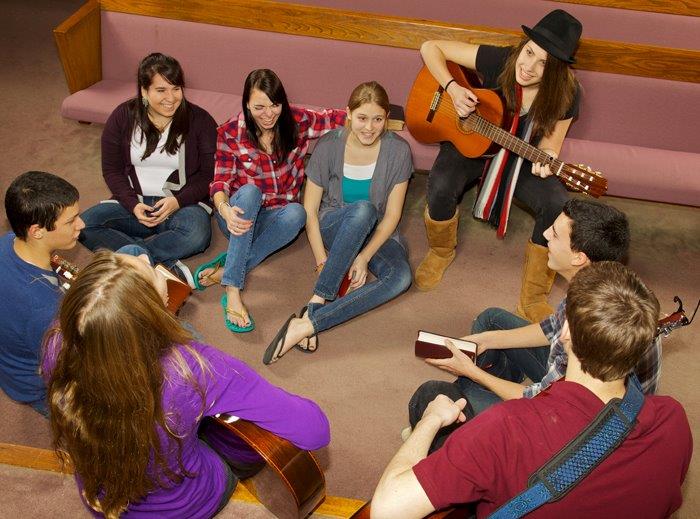Several times I have heard Rev Prof Andrew Dutney, president of the Uniting Church in Australia, speak of paragraph 13 of the Basis of Union with young people. I get excited every time he brings it up because it challenges my imagination, pushing me towards a vision of the future church that I sense lying in wait, not quite revealed.
The paragraph reads:
Basis of Union paragraph 13 – Gifts and Ministries
The Uniting Church affirms that every member of the Church is engaged to confess the faith of Christ crucified and to be his faithful servant. It acknowledges with thanksgiving that the one Spirit has endowed the members of Christ’s Church with a diversity of gifts, and that there is no gift without its corresponding service: all ministries have a part in the ministry of Christ. The Uniting Church, at the time of union, will recognise and accept the ministries of those who have been called to any task or responsibility in the uniting Churches. The Uniting Church will thereafter provide for the exercise by men and women of the gifts God bestows upon them, and will order its life in response to God’s call to enter more fully into mission.
There are several points of interest in Paragraph 13. Firstly, there is an affirmation that “every member of the church” is to be engaged in confessing Christ and faithful service. This is a reminder that the first third, people aged 30 and under, are not just Christians in waiting, but members of the body of Christ with the same responsibilities to serve and confess as older members of the church. Secondly, there is the point that the Spirit has given a diversity of gifts to members of the church, and “there is no gift without its corresponding service”. This is a fascinating idea. If the call is for all gifts to be used in service then it becomes imperative, not only for us to identify the gifts of everyone in our congregations, but to help them use them to serve the church, each other and the world. Far from the humility often pushed upon us, this call links back to the idea of not hiding our light under a bushel, suggesting that it might in fact be a sin to fail to use our gifts for the good of others.
Perish the thought, however, that we might then take this line to our first thirders and simply demand that they share their gifts. In my experience, it is not a lack of gifts or the willingness to share them that keep the first third silent, but the inability of other generations to make way for the expression of their gifts. In a million ways, we make it hard for the first third to express their gifts. We send children out where we cannot hear their questions or insights.
We react defensively to the questions and doubts of teenagers. Those who express an interest in leadership are told to join a roster or fit into a small list of roles we need filled – or worse, told to run the Sunday School. Those who express interest in doing something in areas like the environment, social justice or LGBT (lesbian, gay, bisexual, transgender) rights are often told that these things are not the concerns of the church, even though all of life on earth is our concern.
We also casually reject our young people by failing to accept that they have lives much bigger than Sunday morning church services. We expect them to do things for us when they already have commitments every night of the week and then question their dedication when they say no. We get annoyed when they don’t come to church services because they have sport, other commitments or want to sleep in. We fail to recognise ministries such as captaining a soccer team, being on the school debating team or protesting environmental destruction, because we don’t see them or take the time to know what is happening.
Andrew Dutney’s challenge is to imagine what the church would be like if we were to build it around the interests and gifts of our young people. I love to play with this idea. What if we started from scratch; just asked our young people what they are passionate about and built a church around that? What form would it take? I don’t think it would be your standard Sunday morning service. I imagine instead groups of people joining protests around human rights, people feeding the hungry, planting trees and watching movies. I imagine flexible ideas around worship. I imagine groups co-creating with others. I imagine people making natural connections between life and faith.
I think we would become much more relevant. I think a raft of new leadership opportunities would arise for young people and that we would finally be all able to use our gifts. We might still have traditional services, but our faith would become more of an every-dayof- the-week thing.
The last sentence of paragraph 13 tells us we must think seriously about embarking on this journey where we explore the possibilities aroused by the idea of building churches around the passions of all members. Read through the paragraph again and reflect on it. It might be easiest to think about how the church would look if you fully used your own gifts. Imagine what the church would look like if young people fully used their gifts. What kind of shape do you see emerging and how are you going to encourage your church to move toward this vision?
Jessica Morethorpe, First Third Specialist for the Metro West region
